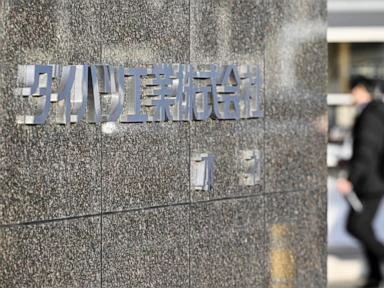Toyota Small Car Maker Daihatsu Shuts Down Japan Factories During Probe of Bogus Safety Tests
Amidst a cloud of controversy, Daihatsu, a subsidiary of the revered Japanese automaker Toyota Motor Corp., has taken the unprecedented step of halting production lines at all four of its factories in Japan. This move comes as transport ministry officials initiate a thorough investigation into alleged irregularities concerning safety certifications.
Background and Context
A series of events has led to this extraordinary development within the automotive industry. Daihatsu, renowned for its small car lineup, has been engulfed in scrutiny after allegations of improper safety tests surfaced. These tests form the bedrock for safety certifications, a cornerstone of consumer confidence in vehicle reliability.
The Decision to Halt Production
The decision to suspend operations at all its factories in Japan presents a strategic yet undoubtedly challenging move for Daihatsu. It signifies the gravity of the situation and the company’s steadfast commitment to transparency and rectification. This proactive measure is indicative of a brand determined to protect its integrity and uphold stringent safety standards.
Impact on Operations and Employees
With production lines grinding to a halt, the ripple effects extend beyond the evident financial implications. The pause in operations undoubtedly affects the livelihoods of Daihatsu’s employees and the wider ecosystem of suppliers and stakeholders. The temporary closure underscores the far-reaching consequences of potential malpractice in safety compliance within the automotive sector.
Collaboration with Regulatory Authorities
Collaboration with the transport ministry officials signifies Daihatsu’s acknowledgment of the seriousness of the allegations. Through this engagement, the company aims to provide unfettered access to information and extend full cooperation to expedite the investigative process. This collaborative stance reflects a commitment to rectify any discrepancies and uphold the highest safety standards.
Rebuilding Trust and Consumer Confidence
The repercussions of this crisis extend beyond regulatory ramifications. The cornerstone of any automotive manufacturer’s credibility lies in the trust and confidence of consumers. Daihatsu is acutely aware of the need to restore faith in its commitment to safety and integrity. Transparency, swift remedial actions, and comprehensive communication are imperative in this arduous journey to regain consumer trust.
Industry-Wide Implications and Reputation Management
The reverberations of this incident are not confined solely to Daihatsu; they permeate the broader landscape of the automotive industry. The integrity and rigor of safety tests and certifications on a universal scale are under scrutiny. Consequently, it’s imperative for stakeholders across the industry to uphold the highest standards of transparency and compliance. Reputation management and ethical conduct stand as paramount objectives industry-wide.
Impact on Toyota Motor Corp.
As a subsidiary of Toyota Motor Corp., Daihatsu’s actions have implications for its parent company. Toyota’s reputation, built on a foundation of reliability and trust, is intricately intertwined with the conduct of its subsidiaries. As the investigation unfolds, Toyota’s response and actions in the wake of this distressing chapter will be under close observation, especially in the context of safeguarding customer trust.
Reassurance to Global Markets and Stakeholders
The ramifications of this incident transcend national borders, posing an imperative for Daihatsu and its parent company to provide transparent communication to global markets and stakeholders. Proactive measures to address any potential safety concerns and comprehensive reassurances about the reliability of its products become paramount to instill confidence across a diverse spectrum of audiences.
The Path Ahead
As Daihatsu embarks on the journey of rectification and reconciliation, the road ahead is undeniably challenging. Restoring the tarnished credibility and reinvigorating consumer trust necessitates a multi-faceted approach. This entails introspection, stringent reforms, and resolute measures to demonstrate an unwavering commitment to safety and ethical business conduct.
In conclusion, Daihatsu’s decision to halt its Japan production facilities amid investigations into safety certification tests sends reverberations throughout the automotive industry. With a steadfast commitment to transparency, collaboration with regulatory authorities, and a resolute determination to restore consumer trust, Daihatsu is embarking on a profound journey of rectification and ethical reaffirmation. The implications of this incident extend beyond Daihatsu, serving as a stark reminder of the imperatives of regulatory compliance and ethical conduct within the automotive sector. As the industry and stakeholders closely monitor developments, the path to rebuilding trust and credibility will be arduous but essential.
Source: abcnews








No Comments